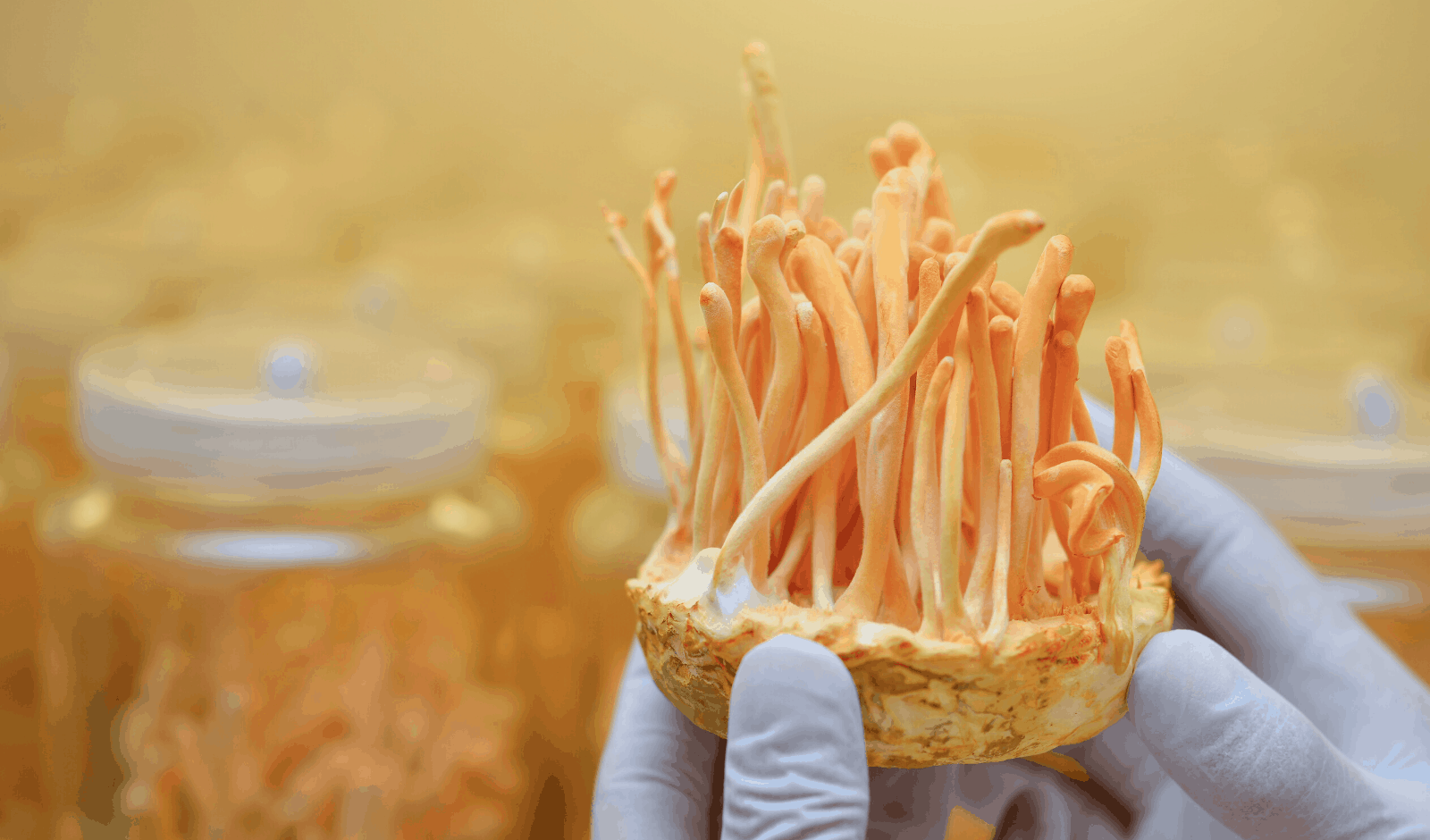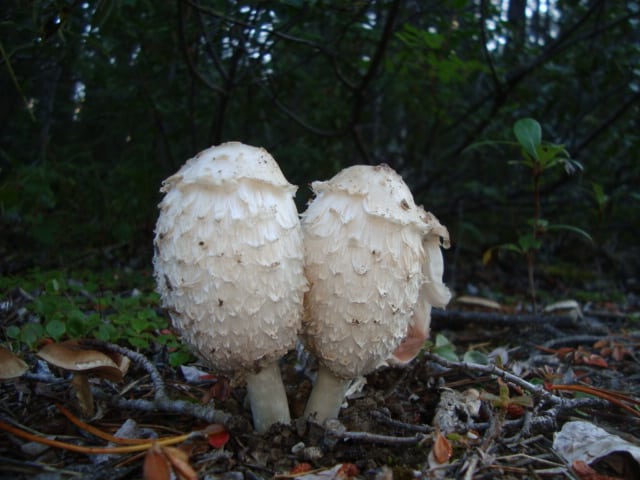A short time ago, we almost lost our little girl- an sweet little Australian Shepherd named Nova. She was fighting for her life, and yet, she wasn't even a year old. It was tough. Of course, our veterinarian was thorough, but after running every test imaginable, it remained a mystery as to why she had a such serious infection affecting multiple organs. Could it have been the bone from the pet store? The dirty puddle at the dog park? Was she poisoned?? To this day it still puzzles me! Ever since that event, I've been ever so careful with what my dog is allowed to eat, and more conscious of ways I can improve her health and quality of life. I started supplementing my own diet with medicinal mushrooms quite a while back. It's kept my immune system strong, my mind clear and focused and stress levels down. These amazing mushrooms have been used for hundred of years in Traditional Chinese Medicine, but are just now starting to become more well known in North America. This got me thinking... Are mushroom supplements safe for dogs? Will they get the same benefits as we do?

Mushroom Supplements for Dogs
Used by many holistic veterinarians, medicinal mushrooms hold tremendous potential value for both dogs and cats. They contain many different vitamins, minerals, antioxidants, proteins, and sterols, as well as being known for their anti-viral, anti-bacterial, and anti-tumour properties. With all of this in mind I think we can easily say that mushrooms can be considered the new superfood for pets. Supplementation can be beneficial for the immune system, digestive system, promoting normal cell growth, acting as an anti-inflammatory, helping to protect against environmental stressors, and even aiding joint and respiratory health. Mushrooms can be easily administered to dogs in a variety of ways- with little or no side effects. Whether served as whole mushrooms, or mixed into their food as a powdered extract, there are many ways your dog can benefit from mushrooms. Keep in mind, not all mushrooms are created equal- types that are poisonous to humans are likely also poisonous to your dog.
1. Immune Health
Numerous compounds, such as, Beta-glucans and polyphenols help modulate your pet’s immune system and help prevent viral infections.
2. Joint Health
Naturally-occurring vegetarian glucosamine and essential fatty acids help support your pet’s joints.
3. Digestion
Mushrooms contain dietary fiber, fungal enzymes and nutrients that help support your pet’s digestive functions.
4. Nutritional Health
Naturally contain vitamins, minerals and amino acids to assist with bioavailability of nutrients to support your pet’s liver, kidneys, and overall health and well-being especially in weak and deficient animals.
5. Skin and Coat
Help produce a lustrous coat to help your pet feel and look their best.
6. Longevity
Unique and powerful antioxidants help reduce oxidative stress and protect against free radical damage.
7. Respiratory and Cardiovascular Health
Mushroom compounds promote circulation and oxygen production.
8. Detoxification
Multiple compounds found in mushrooms support your pet’s normal detoxification processes.
These benefits are not only worthwhile to pursue for young, healthy dogs- even older dogs can benefit.
You may find that with supplementation of certain medicinal mushrooms, old yeller might regain some of his youthful spark and flexibility.
Medicinal Mushrooms for Dogs
Mushrooms typically used in supplementation for dogs are:
- Turkey Tail
- Maitake
- Lion’s Mane
- Cordyceps
- Reishi
- Chaga
- King Oyster
- Shiitake
These mushrooms can be given individually or as a combination. Mushrooms can be given to both dogs and cats as an extract, soup, or made into porridge as a functional food or in pills and powders. Our dogs love our
THRIVE 6 blend
added as a topping to their kibble. We also like to give them
Turkey Tail as a preventative. We also have
Shroomies, which is a blend of medicinal mushrooms made specifically for dogs. To be honest, they love their kibble and will eat almost anything we put on it, but hey- why not try to add some additional nutrition and immune defense? If you plan on supplementing your dogs diet with medicinal mushrooms, keep in mind.... it takes time! It's the same story for
any natural supplement, as it needs to work with their bodies natural immune system. Ensure you give it at least 1-3 months before you determine its effectiveness.
Turkey Tail Mushroom For Dogs
One of the most commonly used medicinal mushrooms for dogs is the Turkey Tail Mushroom, with the scientific name Trametes versicolor (also known as
Coriolus versicolor). Chances are, both you and your dog are already familiar with Turkey Tail. It's actually one of the most common mushrooms in the forest. Turkey Tail grows primarily on fallen logs, and can be found all over the world. Although the mushroom is very common and unassuming, the health benefits derived from properly produced and extracted
Organic Turkey Tail are nothing short of extraordinary. People have been using hot water extracts of Turkey Tail for thousands of years. It is still one of the most important functional mushrooms of all time - and is by far the most researched medicinal mushroom in the world. But it's not just people using Turkey Tail mushroom. In fact,
Turkey Tail is the most commonly administered mushroom for dogs- and it's becoming more and more recognized by veterinarians and dog owners everyday.
Immune Boosting Turkey Tail
I know my dogs aren't the most germ-conscious beings.. in fact, they've no issues with drinking out of a slimy looking puddle, and have been known to eat whatever they find in the woods. I have cringed more than once after seeing what my dogs are willing to put in their mouths. That's why they need a super strong immune system. Turkey Tail can be used as a powerful immune booster, supporting your dogs natural defenses against illness and disease. This is because of the high levels of beta-d glucans, the active ingredient found in properly prepared hot water extracts. These magnificent compounds act to stimulate natural immune cells, helping to take down bacteria and viruses that try to take hold.
Anti-Cancer
The other common reason people supplement their dogs' diet with Turkey Tail is for it's reported
cancer fighting abilities. There have been numerous clinical studies that look at the relationship between cancer and Turkey Tail. Many of the studies have focused on "PSK" or Krestin, a specific water soluble poly-saccharide isolated from Turkey Tail mushroom. Another much studied compound is "PSP" also known as poly-saccharide peptide. Much of the research shows that Turkey Tail (and other medicinal mushrooms) provides safe and effective immune support and can be used as an adjunct to chemotherapy. The idea of using Turkey Tail mushroom for fighting cancer cells exploded in 2012 after a Ted Talk by famed mycologist Paul Stamets, where he told an
inspiring story about his mothers fight with breast cancer.
Turkey Tail as an Adaptogen
Turkey Tail is an "adaptogen" meaning that it can help your dog adapt to various stressors in the environment. This works in much the same way that vigorous exercise does. When your dog gets enough exercise, it is working out the muscles and heart, allowing them to build back stronger. Similarly, Turkey Tail mushrooms can can act as a positive "stress" on the body, helping it to better adapt to other environmental stressors in the future.
How To Give Your Dog Mushroom Extracts
Mushroom extracts can be purchased in powder forma and easily added to your dogs kibble or wet food. Simply sprinkle some on top and mix it in. For kibble, adding some water helps to make sure the powder sticks to the food and is fully ingested. Most dogs like the taste of mushroom powder, or at the very least seem indifferent. For dose, its best to reach out to your vet to get for a recommendation tailored to the specific issue you are trying to target. A good place to start is 1 gram of mushroom extract (about 1/2 tsp) per day for a medium sized dog.
SAFETY
We want to help our pets, and not potentially expose them to any harmful substances. So quality and safety is important! First of all, ensure you know where your mushrooms are coming from. Mushrooms have the ability to absorb heavy metals, chemicals and pesticides. Ensure you are buying
high quality organic mushroom products that are analytically tested to verify allowable limits of such things like the presence heavy metals. If you are feeding your pet fresh medicinal mushrooms
ensure they are properly cooked. This will help to break down the rigid cell walls allowing for increased absorption of beneficial compounds and will destroy and other compounds that could lead to mild stomach irritation and gas. As with anything else, consult with a holistic or integrative veterinarian for the correct usage and dosage for your own animal’s individual requirements. Some animals can be sensitive to mushrooms, and may break out in rashes or have diarrhea, but this is very rare. However, if your pet displays any adverse reactions after eating mushrooms, please take them to your local veterinarian immediately! When administered properly, powerful healing compounds found in medicinal mushrooms can help with many diseases and conditions in both dogs and cats. For trusted, high-quality mushroom supplements for your pets, consider
FreshCap’s range of carefully sourced products.



